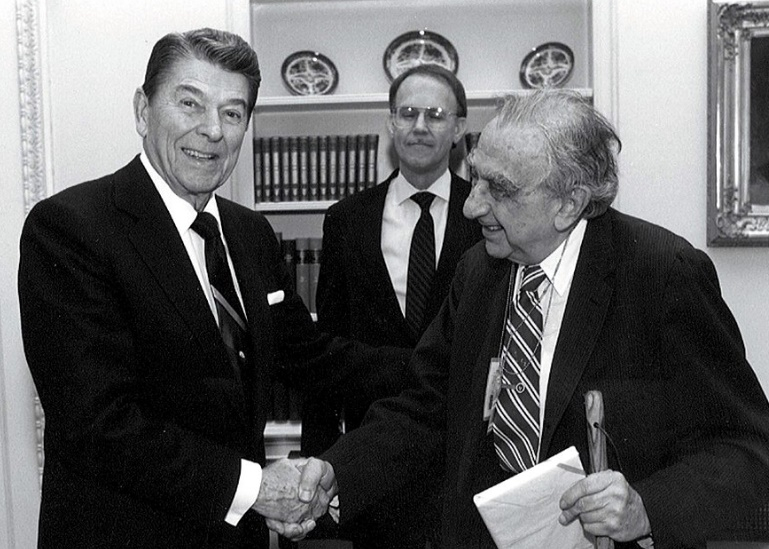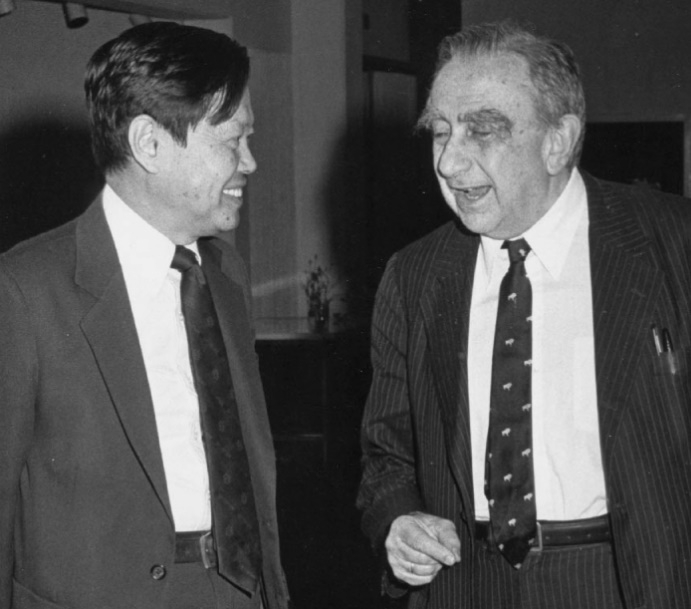He was welcome in the government and military science areas
One of the most interesting facts about Edward Teller is that he was welcome in the government and military science areas. Along with his traditional support for nuclear energy development, a strong nuclear arsenal, and a vigorous nuclear testing program, he had helped to develop nuclear reactor safety standards as chair of the AEC's Reactor Safeguard Committee in the late 1940s, and in the late 1950s led an effort at General Atomics to design research reactors that would prevent a nuclear meltdown. Hundreds of hospitals and universities around the world have built and used the TRIGA for medical isotope production and research.
Teller advocated for increased defense spending in response to the feared Soviet missile threat. He signed the 1958 report of the Rockefeller Brothers-funded Special Studies Project's military sub-panel, which urged for a $3 billion annual increase in America's military spending.
He attended the Project Nobska anti-submarine warfare conference in 1956, where he discussed everything from oceanography to nuclear weapons. He launched a conversation about building a physically compact one-megaton nuclear warhead for the Polaris missile while discussing a small nuclear warhead for the Mark 45 torpedo. J. Carson Mark of the Los Alamos National Laboratory, his counterpart in the conversation, first maintained it couldn't be done.Dr. Mark eventually indicated, however, that a half-megaton warhead of sufficient size might be constructed. This yield, nearly thirty times that of the Hiroshima bomb, was sufficient for Chief of Naval Operations Admiral Arleigh Burke, who was present in person, and by the end of the year, Navy strategic missile development had transferred from Jupiter to Polaris.
From 1958 to 1960, he served as Director of the Lawrence Livermore National Laboratory, which he co-founded with Ernest O. Lawrence, and then as an Associate Director. He chaired the committee that established Berkeley's Space Sciences Laboratory. He was also a Professor of Physics at the University of California, Berkeley. He was a persistent champion for a strong nuclear program and campaigned for continuous testing and development; in fact, he resigned as Livermore's director to better lobby against the planned test ban. He testified against the test ban in both Congress and on television.
Teller created the Department of Applied Science at the University of California, Davis, and the Lawrence Livermore National Laboratory in his honor in 1963, which now houses the Edward Teller endowed chair. He retired from both the lab and Berkeley in 1975 and was named Director Emeritus of the Livermore Laboratory as well as Senior Research Fellow at the Hoover Institution. Following the fall of communism in Hungary in 1989, he returned multiple times, paying close attention to the political events there.









